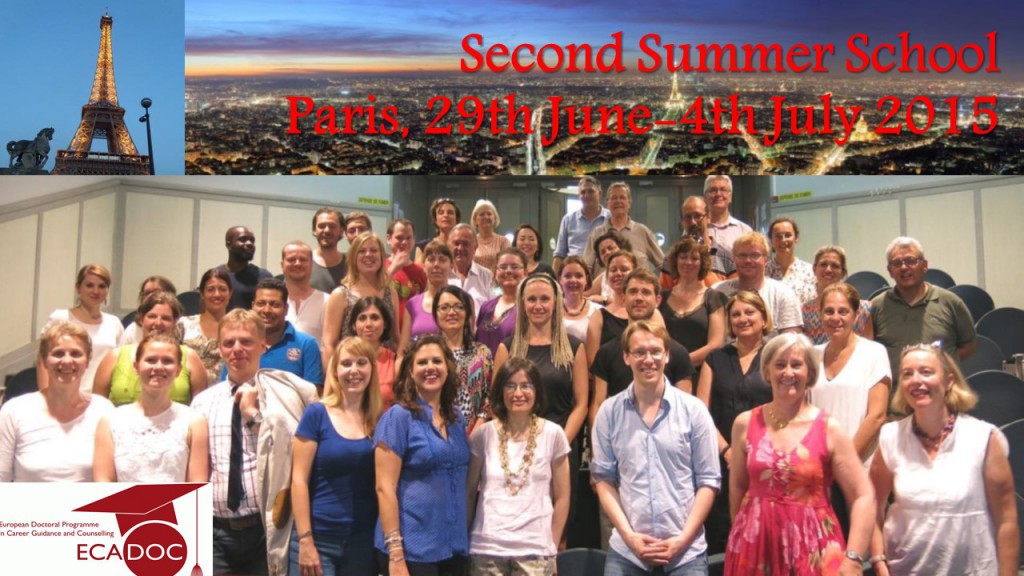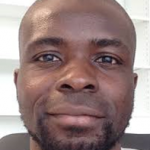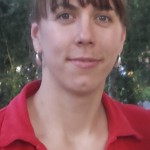Doctoral Students of the Second Summer School
Marc Abessolo
University of Lausanne
Marc Abessolo graduated from the University of Neuchâtel, Switzerland, with a master’s degree in Work/Organizational Psychology. He is currently a doctoral student at the University of Lausanne, in Switzerland, and pursues counselling and vocational guidance training in an educational and vocational guidance service in the University of Lausanne. Marc Abessolo area of research concerns work values (i.e., the importance individuals give to a certain behavior or outcome at work context) and career orientations (i.e., a relatively stable career preferences) concepts. More precisely, Marc Abessolo is currently carrying a doctoral research that involves the development and empirical validation of a career values model by exploring the relationships between work values (e.g., Schwartz’s values, Super’s work values) and career orientation (e.g., protean and boundaryless careers, Schein’s career anchors) frameworks under the supervision of Profs. Andreas Hirschi and Jérôme Rossier. Marc Abessolo is also active as teaching assistant in a master-level coursing focusing on the theories and concomitant practices in counseling.
 Anouk Albien
Anouk Albien
Stellenbosch University, South Africa
Anouk Albien is a Psychology PhD student who has been awarded a research innovation bursary from the South African National Research foundation to conduct her research since 2014. Her work has specifically focused on career development in the Kayamandi Township on the outskirts of Stellenbosch for the last four years. Her role included co-ordinating, training and lecturing career counselling for the Psychology Honours students’ community placement in Kayamandi. Furthermore, she has lectured writing skills and research methodology classes for two years. Her proposed PhD dissertation will use a mixed-methods quasi-experimental design with pre- and post-intervention comparisons of Vocational Identity Status Assessement (VISA) and Career Adapt-Abilities Scale (CAAS) scores of male and female learners from a low income background. This research will be an extension of her Master’s research (Cum Laude) of career influences in the Kayamandi community (entitled Grade 12 Kayamandi Adolescents’ career influences using the systems theory framework of career development) with her supervisor Prof Naidoo. This research forms part of a community interaction project called Career Life-Planning Project, which aims to aid career decision-making processes in both high schools in Kayamandi. Community engagement and collaborative scholarship have moved to the forefront of Stellenbosch University’s institutional policy, showing the importance of this dissertation to inform community-based career psychology research.
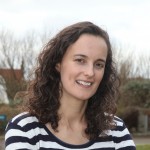 Rosie Alexander
Rosie Alexander
University of Derby, England (UK)
Rosie Alexander is a qualified careers adviser, and is the Careers Manager for the University of the Highlands and Islands, as well as a PhD student with the University of Derby. Rosie’s professional interests focus on the delivery of careers services within rural and remote communities, and on the career pathways and career needs of people within these communities. In her role as Careers Manager, Rosie is responsible for the delivery of careers education, guidance and information services across a partnership of thirteen independent colleges and research institutions based in the Highlands and Islands of Scotland. This role involves utilising web-based technologies alongside videoconference and telephone to deliver services. Rosie’s PhD draws on her interests and focuses on the career and migration routes of higher education students from the Orkney and Shetland Islands. In this project she is using qualitative narrative methodologies and is seeking to understand how coming from a remote island location influences students’ subsequent career narratives and trajectories. She blogs regularly about her research: https://rosiealexander.wordpress.com/
 Caroline Arnoux-Nicolas
Caroline Arnoux-Nicolas
Centre de Recherche sur le Travail et le Développement (CRTD), Inetop – Conservatoire National des Arts et Métiers (CNAM), France
Caroline Arnoux-Nicolas. She first obtained a degree from E.D.H.E.C. Business School – Ecole des Hautes Etudes Commerciales du Nord, after a scientific baccalaureate at the International Lycée of St-Germain-en-Laye (France). She also studied psychology at the University of Paris Ouest La Défense, where she got a Bachelor’s Degree in work psychology and Master II « Research in psychology ». After work experiences in different companies in the field of marketing and financial communication, she passed a state diploma in psychology and vocational advising and she worked during two years as a psychologist and vocational adviser in a center of vocational information and guidance. Caroline Arnoux-Nicolas is currently working at the Conservatoire National des Arts et Métiers (CNAM) in Paris, as Head of continuing vocational training department for the Department Travail Orientation Formation. At the same time, she is a member of the Centre of Research on Work and Development (CRTD) of the Cnam (Paris). She is currently preparing a thesis on the following topic: “the relationship between career changes and the meaning of work”. Her thesis director is Professor Jean-Luc Bernaud, Inetop-Cnam, Paris. Her thesis codirector is Professor Annamaria Di Fabio at the University of Florence in Italy. Her fields of research are: meaning of work, professional mobility, transition and career redirections. She is involved in the meaning of work and life collaborative Group under the direction of Professor Jean-Luc Bernaud (Inetop-Cnam, Paris).
 Martin Biehaule
Martin Biehaule
Heidelberg University, Germany
Martin F. Biehaule studied engineering and business psychology. While working as a project manager and outplacement consultant in a department for career transition in an engineering company he studied vocational guidance and organisational counselling at Heidelberg University. Since he has been promoted with a scholarship by the Foundation of German Business (Stiftung der Deutschen Wirtschaft) he is doing a doctorate in the area of team development with the focus on the assumptions of dynamic systems theory. His special interest is set on illustrating and analysing self-organisation and critical moments of instability, which leads to development or change in the team, seen as a complex, dynamic and nonlinear system. In the project of quality development and professionalization in career guidance and counselling at Heidelberg University he was engaged in evaluating counsellors. Besides his research activities he designs processes and implements concepts as freelance consultant for an international career transition and talent development organisation. If there is any spare time he is very passionate about reconstructing an old house hoping that nothing of his refurbishment breaks down.
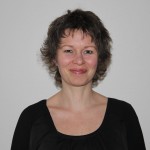 Randi Boelskifte Skovhus
Randi Boelskifte Skovhus
Aarhus University, Denmark
Randi Boelskifte Skovhus. I am a senior lecturer at VIA University College, Aarhus, Denmark. Here I teach at our diploma programme in career guidance and participate in various projects concerning career guidance. I am also a PhD student in the research programme ‘Lifelong Learning’ at the Department of Education, Aarhus University, Denmark. My research project is a four-year project from 1 January 2013 to 31 December 2016. I research career guidance provided by the Youth Guidance Centres in lower secondary school. The research questions are: (a) Structures – how do schools and youth guidance centres work together on this task ? (b)What kind of opportunities do young people have for participating in career guidance? (c) Choices – how are different grounds for wishes and choices met by the professionals, and how does this affect the young people and the guidance process? (d) How can working with career management skills be considered in a social justice perspective in youth guidance? I work with qualitative methods: Participant observations, situated interviews and semi-structured interviews. Another part of the research explores which issues there have been interest for gaining knowledge about in relation to the youth guidance centres. The research questions for this part of the project are: (a) What empirical studies and evaluations including youth guidance centres have been carried out in Denmark during the period 2004-2014? (b) What issues have been examined in these studies?; Who has asked the questions? (c) What questions have not been asked? (d) What is the potential impact of this on the development of guidance in Denmark? At the moment (March-May 2015) I visit the International Centre for Guidance Studies in the UK. Here I work with my research project while I am getting inspiration from the team at the ICeGS.
 Iva Černja
Iva Černja
University of Zagreb, Croatia
Iva Černja was born in Zagreb, Croatia in 1987. She graduated at the Centre for Croatian Studies, University of Zagreb with major in psychology in 2012 (mag.psych). During the study she conducted Professional Development workshops in primary schools within “School Professional Development Program” (RAZBOR, Society for Research and Development of Human Resources). After her studies she was working as an external collaborator at the Department for Research Methodology in Social Work and Social Policy at the Faculty of Law, University of Zagreb. Since 2014 she has been teaching assistant at the Department of Psychology, Centre for Croatian Studies, University of Zagreb. She is involved in teaching courses: Descriptive statistics, ANOVA Models and Research Methods Practicum. Iva is a board member of the NGO Research Methodology Development Centre that conduct research studies an promote the use of scientific methodology. She enrolled into the Postgraduate doctoral study of psychology at the Faculty of Humanities and Social Sciences, the University of Zagreb in 2015. She is conducting research in the field of professional development, career choice and vocational interests. Currently she also works as a researcher on the project Vocational Development in Adolescence: Setting the Career Transition project at Institute of Social science “Ivo Pilar”. The goal of her doctoral dissertation is to explore the relationship of measures of professional development and vocational interests.
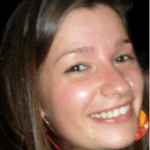 Ilaria Di Maggio
Ilaria Di Maggio
University of Padova, Italy
Ilaria Di Maggio. She is a Phd student at Doctoral School of Psychological Sciences at Padua University. She received her master degree in psychology at the University of Padova and also her post graduate master course in “Life design and career counseling”. In according to the Life Design approach that emphasized the need to promote the development of abilities and knowledge that allow to prevent and face with success the professional difficulties that characterize the present job’s market, and keeping in mind the higher difficulties that the people with drug addictions have to face in building their future, the aim of her Phd’ s research project is to analyze the role of two central dimensions to face nowadays job’s market: career adaptability and hope, on the levels of life quality and future orientation for people with Substance use disorder. Since 2013 she has been collaborating with the Larios Laboratory and the University Center for Disability, Rehabilitation and Inclusion of the university of Padova. As regard career field, her research interests concern Life Design and positive psychology in diverse groups of people: children, youth, addicted adults and helping professionals. As concern disability field, her research interests focus on social and work inclusion. She is member of the SIO (Italian Society of Vocational Guidance).
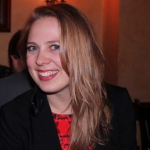 Aniek Draaisma
Aniek Draaisma
Welten Institute, Netherlands
Aniek Draaisma studied Interdisciplinary Social Sciences and Youth Studies at Utrecht University in the Netherlands, from September 2006 to June 2011. After finishing her masters, she participated in or executed independently several research projects. These projects were commissioned by a national youth care organisation, different welfare organisations throughout the country and by the Dutch Department of Education. Her fields of interest include: communication between social workers and delinquent youth, social workers and immigrant families, policy on youth at risk, primary and secondary vocational education and mentoring. In September 2013 she started her doctoral research at the Welten Institute: Research Centre for Learning, Teaching and Technology of the Open University of the Netherlands. Her promotor is prof. Marinka Kuijpers, professor in Learning Environment and Learning Careers in Vocational Education at the Welten Institute of the Open University. Her co-promotor is dr. Frans Meijers, professor in Pedagogy of Vocational and Professional Education of The Hague University of Applied Sciences. Aniek seeks theoretical and practical insight into the influence of ‘Stimulation project Career Orientation and Guidance’ on the level of policy- and management, teachers and students in 36 secondary vocational education schools in the Netherlands. Financed by the Dutch Department of Education the ‘Stimulation project Career Orientation and Guidance’ was developed to encourage vocational educational institutions to initiate and/or continue the creation of a strong career learning environment for their students. In this project, particular attention is paid to policy development with regards to career education in schools and to the training of teachers in having meaningful career conversations with students.
Silke Grossen
Catholic University of Leuven, Belgium
Silke Grossen graduated as an Educational Psychologist in 2013 at the Catholic University of Leuven, Belgium. In 2012 – 2013, she did her master’s internship in psychology at the University of the Free State (UFS), Bloemfontein, South Africa. After completing her internship at UFS and graduating at the Catholic University of Leuven, she started her PhD at the Catholic University of Leuven in October 2013. The PhD is a collaboration between the Catholic University of Leuven and the University of the Free State. Professor M. Lacante (KUL) and professor AA Grobler are her supervisors (UFS). The goal of her PhD research is to develop a school program to promote career adaptability in at-risk adolescent learners in South Africa. The programme will be first implemented in 2015. She is interested in the multiple educational and occupational transitions individuals go through in their lives and how people can prepare for and adapt to these transitions. She is especially interested in career development of minority groups, both in Europe and South Africa. Silke has been working as a school counsellor in a rural school in South Africa. Furthermore, she has experience in Subject Choice Counselling and Career Counselling with both advantaged and disadvantaged high school learners. Silke was one of the participants in the previous ECADOC Summer School in Padova, Italy. In order to have more background information about the world of work, she also started studying Industrial Psychology at the Catholic University of Leuven in September 2014.
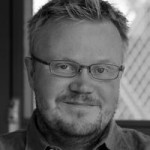 Erik Hagaseth Haug
Erik Hagaseth Haug
Lillehammer University College, Norway
Erik Hagaseth Haug, 35 years old. I am doing my PhD research as a part of my position as assistant professor in Guidance at the master program in career guidance and several further educational training programs in Guidance at Lillehammer University College in Norway. In my PhD research I am focusing on different aspects of quality in career guidance practice in a Norwegian school context. My main interest is on the different understandings of the concept of quality in career guidance among pupils, guidance practitioners, school leaders and national policy makers. My research is based on a qualitative research design. My prior training is a master degree in educational guidance at Norwegian University of Science and Technology. I have worked as a guidance practitioner in ten years at universities, in public employment service and in a regional career center for adults. In my last position, I also worked as a coordinator of career guidance in schools in my region. In 2014, I was process leader of a national expert group appointed by the national unit for career guidance in Norway. Our mandate was to elaborate how a national framework based on Career Management Skills could professionalize guidance practice in Norway. In April 2015, I was appointed by the Norwegian government as a member of an expert group with a mandate to examine a future system for lifelong guidance in Norway. This is a follow up of many years systematic policy work, and more directly, of the OECD skills strategy Action Plan-report.
 Nurten Karacan Özdemir
Nurten Karacan Özdemir
Middle East Technical University, Turkey
Nurten Karacan Özdemir is a Ph.D. student in Psychological Counseling and Guidance at the Middle East Technical University in Turkey. She received Bachelor’s and master degrees in psychological counseling and guidance in educational sciences also. She works as school counselor at an university affiliated private school with middle school students. She worked with high school students also in the past. She is currently preparing a thesis on the following topic: “Determining the Factors Influencing Career Adaptability among High and Low SES High School Students”. The aim of this study is to investigate the some potential factors that contribute to career adaptabilities of high school students by collecting and analyzing quantitative and quantitative data. Nowadays, she collects the data from participants. As experienced school counselor with over nine years, she aims at specialize in career counseling by increasing educational knowledge, skills and experiences. As well, she is interested in reading philosophy, learning Spanish and doing voluntary works with children and parents from low SES.
 Jaana Kettunen
Jaana Kettunen
University of Jyväskylä, Finland
Jaana Kettunen is a Researcher at the Finnish Institute for Educational Research of the University of Jyvaskyla, Finland. In her work she has been focusing on the design and pedagogical use of information and communications technology (ICT) in learning and working environments. She has extensive experience on training, supporting and working with practitioners throughout Finland. Her research interest is on the role of ICT and social media in career services. It is both theoretical and practical: it aims at the development of theory-based and evidence-informed pedagogical practices. Her current research focuses on the career practitioners’ ways of experiencing and conceptualizing social media in career services, and aspects that are seen as critical in the successful use of these new technologies in career services. Recently her research has also looked into the role of ICT in relation to national lifelong guidance policies.
 Andréa Knabem
Andréa Knabem
Universidade Federal do Paraná, Brazil
Andréa Knabem, Brazilian from the south of Brazil. I graduated in Education, Journalism and Psychology and I did my Master’s in Psychology. Now I’m involved in the PhD Program in Social Psychology at the Psychology Institute of the University of São Paulo, Brazil, supervised by Professor Dr. Marcelo Afonso Ribeiro and Professor Maria Eduarda Duarte, Faculty of Psychology, University of Lisbon. I arrived in Lisbon in January this year and currently I’m doing an 11-month internship at the University of Lisbon. The focus of my PhD research is to understand how university graduates start their professional life. The ongoing study follows, theoretically, the perspective of social constructionism and, methodologically, a qualitative approach (Grounded theory). I work as a teacher at the Federal University of Paraná and since my graduation I have been involved in teaching, first at elementary schools, then secondary and then at the university. At the university I work on a project (now it’s temporarily suspended) aimed at helping first-year students to learn more about their university (courses, studies, etc.) and final-year students to plan their professional life. The Summer School would be an excellent opportunity for me to know more about research carried out in Europe and to strengthen research and friendship ties with new colleagues.
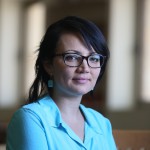 Yuliya Lipshits-Braziler
Yuliya Lipshits-Braziler
Hebrew University of Jerusalem, Israel
Yuliya Lipshits-Braziler is a doctoral student at the Hebrew University of Jerusalem’s School of Education and a fellow at the Mandel Leadership Institute. Yuliya holds bachelor’s and master’s degrees in Educational Counseling from the Hebrew University of Jerusalem. Her doctoral research, under the supervision of Prof. Itamar Gati and Prof. Moshe Tatar, focuses on strategies for coping with career indecision. The findings from Yuliya`s PhD research contribute to understanding of the factors that affect effective coping with career indecision; and make it possible for career counselors to develop counseling interventions to strengthen effective coping strategies among young adults deliberating about their career choice. Yuliya works as a career counselor, lecture, and coordinator of the Educational Counseling Program at the Hebrew University of Jerusalem. She is an AERA (American Educational Research Association) and IAAP (International Association of Applied Psychology) member. For the last two years, Yuliya has volunteered at the NCJW Research Institute for Innovation in Education—an institute established to conduct experimental programs for advancing disempowered sectors in Israel. Yuliya immigrated to Israel from Turkmenistan in 1998. She is married and has a 3 year old daughter.
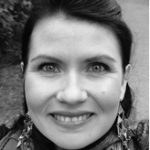 Sanna Pauliina Mäkinen
Sanna Pauliina Mäkinen
University of Eastern Finland, Finland
Sanna Pauliina Mäkinen. I graduated in 2008 from the Educational and Vocational Guidance and Counselling Program from the University of Eastern Finland. I have work experience from guidance and counselling as a researcher in national development project of the Ministry of Education concerning guidance and counselling in basic education (2008–10) and as guidance practitioner in general upper secondary school of Järvenpää (2010–13). I have participated guidance and counselling national core curriculum design as part of a working group in the Finnish National Board of Education in 2013–14. My PhD research is intersecting the fields of guidance, youth research and educational sociology. I am interested in the forms and boundaries of agency in the life course of young adults in marginalized positions in the context of a Finnish learning society. The empirical research data consists of a 4-month participatory observation and individual and group interviews of young people and professionals in an Eastern Finland ESR-project (2010-2014) which provided guidance and training young people not in education, training or work.
 Michal Mielczarek
Michal Mielczarek
University of Lower Silesia, Wroclaw, Poland
Michal Mielczarek – M.A. in sociology, PhD student (thesis: ALMP in the counseling field of Job Center. Critical (auto)etnography perspective), university teacher and research assistant in Dept. of Social Pedagogy and Counsellogy, Univ. of Lower Silesia, Wroclaw, Poland. His research interests focus on the field of social policy (social welfare and education with emphasis on career counseling, combining these two aspects of the policy). He’s trying to explore ignored dimensions of aid processes, their ideological involvement, hidden features, and what interests they serve. Considering the tension between processes of adaptation and contestation. Investigations are embedded in context of issues such as social change, symbolic power and social inequalities. His goal is to deconstruct contemporary aid discourse. Inspiration for him is critical-emancipatory paradigm and especially P. Bourdieu’s theory of field. Michal is also a career counselor – practitioner that has worked both in public employment services, as well as commercial and NGOs. He’s participated in many professional and scientific projects – the last one was Narrative of learning from the low skilled prepared for CEDEFOP.
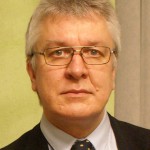 Janis Pavulens
Janis Pavulens
Latvia University, Latvia
Janis Pavulens is a lecturer at the Institute of Education and Home Economics at Latvia University of Agriculture since 2010. His teaching areas include social psychology, research methodology and career counselling. In the beginning of his teacher career he studied teaching of physics and mathematics and some years worked as teacher in secondary school. Afterwards he studied psychology and graduated from University of Latvia as school psychologist and teacher of psychology and pedagogy in teacher colleges. Janis was a first head of the first re-socialization community for adolescent drug addicts in Latvia, several years worked as school psychologist, more than 16 years he worked as psychologist, counsellor and lecturer at the Latvia State Employment Agency. Since 2011 he is also a self-employed supervisor, counsellor and lecturer. He obtained his Master degree in Career Counselling at 2010 and at the same year became a student in doctoral study programme Pedagogy at Latvia University of Agriculture. His research interests include development of career self-management competence among rural secondary school students, in his research work he concentrates on development of constructivist model of career self-management and appropriate career guidance in the context of knowledge society.
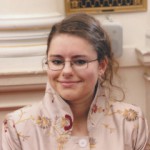 Christina Pernsteiner
Christina Pernsteiner
University of Graz, Austria
Professional Experience: since 2014: researcher & lecturer – University of Graz, department of early childhood & elementary education; areas of expertise: childhood, early education, CMS/CG, writing in science, gender; dissertation: “The world of work from the perspectives of children”; 2008-2014: project leader – MAFALDA, association for supporting girls & young woman; development & implementation of CMS-projects with primary & secondary schools; quality & quantitative research on the meanings & effects of CMS; coordination & analysis of a national evaluation of the CMS concept “IBOBB”; development of teaching & learning material.
Education: since 2013: doctoral program education science – University of Graz; 2010: training on career coaching & counseling; 2002-2008 diploma program education science – University of Graz. Publications (extract): 2015: “Reconciliation of work & family life in early childhood education”, article; 2014: “IMPULS – teaching CMS in primary schools”, guidebook.
Mobility: 2014: Study Visit “’Competent’ – an instrument for new labour market services” -Brussels, BE; 2010: Study Visit “Working together to develop skills & confidence for primary school citizens” – Colchester, UK.
Memberships: European Early Childhood Education Research Association; Austrian Association of Research & Development in Education; Austrian Association Educare
 Krzysztof Podwójcic
Krzysztof Podwójcic
Warzaw, Poland
Krzysztof Podwójcic. My doctoral dissertation refers to the problem of unemployment (or underemployment) among university graduates, the role of career offices in reducing that problem and the impact of labour market expectations on the structure of courses offered by the Polish higher education institutions. I conducted 30 interviews at different universities with two kinds of respondents: career counsellors in career guidance offices and decision-makers in higher education institutions. Moreover, I held interviews with the representatives of large companies which cooperate with higher education sector. My experience related to the career guidance consists of several research projects I carried out. The largest of them involved two random and representative samples of over 1800 respondents from lower secondary schools, general and technical upper secondary schools as well as basic vocational schools. Based on the survey, I have prepared a publication “The diagnose of the state of the vocational-educational guidance in secondary and upper secondary schools in Poland”. I participated in the contest for young scientists dealing in their doctoral projects with topics essential for economy – “Doctorate for Mazovia”. I was awarded with the scholarship which enables me to continue my research.
 Marie-Line Robinet
Marie-Line Robinet
France
Marie-Line Robinet. Study of identity reorganization processes during constructivist interviews. Constructivism, for psychology, is based on the idea that reality can not be known directly, it is only accessible through a symbolic construction. The individual is described as influenced by its environment and as acting on it depending on how it interprets it. Identity is a symbolic form in which people tell, argue and explain themselves. In this context, the theses of Vygotsky and Jacques, can certainly enable an analysis of the counseling interaction and identity reorganization during this interaction.
Formation: Master degree in Work and Transitions Psychology – CNAM (2013); Bachelor Degree in Linguistics and Communication – University of La Sorbonne / Paris III (1990).
Experience of counsellor: I have more than 20 years of experience in public employment services. During all these years, I worked in various situations: with people in big trouble or with executive managers, with young or experienced people. I help them for finding job or training, changing profession; using short or long interviews. The research I plan matches a question of profession. After a few years working as a counsellor, I wondered if what I was doing with unemployed people was useful. My main question was then: Now, years later, my question is: How does it work? This is the question that I try to provide some answer.
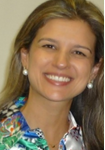 Cláudia Sampaio Corrêa da Silva
Cláudia Sampaio Corrêa da Silva
Federal University of Rio Grande do Sul, Porto Alegre, Brazil & University of Lisbon, Portugal
Cláudia Sampaio Corrêa da Silva is a psychologist, master and PhD candidate in Psychology at the Federal University of Rio Grande do Sul (Porto Alegre, Brazil). She is currently engaged in a split fellowship doctoral program of one year at the University of Lisbon. Her doctoral supervisors are Professor Marco A. P. Teixeira (Brasil) and Professor Maria Eduarda Duarte (Portugal). Her PhD research aims at investigating changes in autobiographical narratives, adaptability and meaning in life during the career counselling process. The study of outcomes and processes is being made in an integrated way, in order to facilitate a better understanding of change in career counselling and the development of more effective intervention. As a career counsellor at the university, she is interested in students´ career development and in the integration between practice and research. Cláudia works at the Career Guidance and Counselling Service and at the Student Support Center of Federal University of Rio Grande do Sul as a psychologist since 2009. Her main experience is with individual and group career counselling, with undergraduate and graduate psychology students´ supervision in career interventions and with applied research development. She also has experience as lecturer of Career Planning courses to higher education students, and as reviewer of scientific journals in Psychology. She is a member of the International Association of Applied Psychology.
 Sara Santilli
Sara Santilli
University of Padova, Italy
Sara Santilli is a PhD student at Doctoral School of Psychological Sciences at Padua University, psychologist, post graduate degree in Career Counseling, collaborates with La.R.I.O.S. (Laboratory of Research and Intervention in Vocational Guidance), University of Padova, in the organization of vocational guidance projects and research concerning disability, career guidance and job placement. The PhD’s research project “Life Design, Adaptability and Life satisfaction”, develops inside the approach Life Design (LD) that emphasizes the need to support people to become experts in co-construction to anticipate and deal with career transitions, and to consider the hope for a foreseeable future, useful to individual’s future planning and behavior, and career adaptability. The research project aimed to investigate the relationships between the variables on which the LD approach is focusing attention, such as the career adaptability, and new constructs such as hope, optimism, time perspective, resilience, courage, solidarity and cooperation, relevant to coping with the current work context. Vice chairman of the Italian Society for Vocational Guidance (SIO). Member of: the Italian Society of behavior analysis and modification and cognitive behavioral therapy – AIAMC; Italian Society for Psychology- AIP; the Italian American Psychology Assembly (IAPA); University Network for Counselling (NUC).
 Christina Stead
Christina Stead
Canterbury Christ Church University, UK
Christina Stead. Originally I read History and graduated in 1986. I developed a career in higher education administration and became the Head of the Quality Assurance Unit at a post-1992 university. When my daughter was born in 2004, I took a career break. In 2013, I completed an MA in Career Guidance at Canterbury Christ Church University (CCCU) and then successfully applied for a PhD scholarship which began in January 2015. The working title of my thesis is Women at the School Gates: a Narrative Study of the Career Paths of Four Women. I will be interviewing three women who have successful professional careers and who are also mothers of children under the age of 11 years. I am the fourth woman in the title, as the work is explicitly auto/biographical. I am interested in the influences, opportunities and constraints on these women’s careers, particularly their responses to motherhood. I want to elicit their own thoughts on their career trajectories, career/personal identities and, particularly, their approaches to the management of competing professional and domestic commitments. In addition to my studies, I see occasional private clients for careers advice. My research should generate pointers for career guidance practice with mid-career women.
 Dénes Szemán
Dénes Szemán
Hungary
Dénes Szemá. My doctoral research is a part of gender studies and carrier guidance. I would like to find the connection between the plasticity of gender roles and a career choices. The modern conception points out that the men trying to reach equality in order not to lose their males’ role. He should be masculine and sensible, partner and gentleman, breadwinner and sensitive father at the same time. Changes in the masculine representations of career and career choices are affected. Several international studies have revealed that transformation in the labor market needs that gender roles can transform into different career aspirations. In my study, I would like research that dynamically changing gender role how to affect the carrier decisions with regard to career development. In my qualitative research I examine the change of the Holland’s six interests direction and future plans in narratives of semi-structured carrier interviews. Currently I’am working as a carrier counsellor at Hungarian National Information Centre for Higher Education. I have experience as a lecturer in qualitative/quantitative research methodology, gender studies, carrier guidance, literature review and training methodology.
Diana Tchasse Simo
Vytautas Magnus University, Lithuania
Diana Tchasse Simo is postgraduate in career designing from Vytautas Magnus University in Kaunas and she is writing her PhD research in the same field. The topic of her research thesis is “International last year bachelor/master students’ preparation to succeed in pursuing employment in destination country Lithuania“ which rose from her interest in immigrants’ career development. She has served as Talent Manager for AIESEC (www.aiesec.org) before becoming a certified De Bono Trainer since 2012. She participated in numerous projects based on teaching E. de Bono thinking such as training Lithuanian school teachers on acquisition and application of De Bono thinking and thinking tools. She is very much interested in career design and redesign, Solution-Focused coaching for teams and organizations and previously mentioned E. de Bono thinking and thinking tools. She is passionate about adult education and training, which is her bachelor field of study. Currently stay-at-home mother of three children, she is based in Kaunas-Lithuania with her husband, who is an immigrant himself developing his career in Lithuania.
Nicole Wiench
University of Applied Labour Studies of the Federal Employment Agency (HdBA), Germany
Nicole Wiench hold a Master’s Degree in Education from the Goethe University Frankfurt, Germany where she studied Education with the focus on Adult Education/ Further Education, Sociology and Psychology. She is enrolled at the Aachen University, Germany, Institute for Educational Science as a PhD student in the work group School Pedagogy and Educational Research. Herr current research project is an empirical study, which will examine how trainees who have a dropout risk differ from trainees without a dropout risk and which role plays counselling to prevent dropout from VET. The investigations imply both quantitative and qualitative analyses. She is currently working as a Scientific Assistant at the University of Applied Labour Studies of the Federal Employment Agency (HdBA) in Mannheim, Germany. Her research focuses on the prevention of dropout in VET through counselling. She holds a seminar in the field of counselling for students of the HdBA on the topic of the identification and counselling of trainees with a high dropout risk. And she gives also training courses for vocational training professionals. She participated in the organization of national and transnational meetings and activities. During university years she was involved in the European project PraeLAB (Prevention of Dropout in VET, 2010-2012). Her research interests include career counselling, counsellor training and soft skills development and further education.
Julia Yates
Canterbury Christ Church University, England (UK)
Julia Yates. I currently work as a Senior Lecturer in the School of Psychology at the University of East London. I am the course director of the MSc in Career Coaching, and I teach on our MSc in Coaching Psychology, and the MSc in Occupational Psychology. Before this I spent 12 years as a career guidance practitioner in Higher Education, most recently as the Head of Careers Service at the University of the Arts, London. My PhD is about career decision making. I’m conceptualising career decisions as decisions about social identity, based on the notion of possible selves (the idea that career decisions are made based not on ‘what do I want to do?’, but on ‘who do I want to be?’). In particular I am interested in the decision makers’ personal stereotypes of members of particular occupations, and the wealth of implicit knowledge that we amass about the lifestyle, tastes and life choices of these stereotypes. In the UK, for example, a typical social worker is often thought to be left wing, grow their own vegetables and enjoy camping holidays. In my thesis I’m trying to find out a bit more about these stereotypical features, what they might symbolise, and what impact the stereotypes have on career choices.
Guests of the Second Summer School
 prof. Marcelo Afonso Ribeiro
prof. Marcelo Afonso Ribeiro
University of Sao Paulo, Sao Paulo, Brazil
Marcelo Afonso Ribeiro. Professor at the Social and Work Psychology Department (graduate and postgraduate studies), doctoral supervisor, and Director of the Work Applied Psychology Center, Coordinator of the Career Counseling Service at the University of Sao Paulo, Sao Paulo, Brazil. Received his PhD in career counseling from the Psychology Institute, University of Sao Paulo, Brazil. Currently involved in studies of identity construction, career construction, work activity, organizational processes, and psychosocial vulnerability. Has published over 40 journal articles and book chapters mainly focused in career construction, identity construction, and psychosocial relationships, in the interface between organizational and work psychology and career counseling. Brazilian representative of the Latin American Network of Professionals in Guidance and Counseling, former president of the Brazilian Association for Vocational Guidance and Career Counseling, and member of ESVDC (European Society for Vocational and Career Counseling Designing).
 prof. Hanako Suzuki
prof. Hanako Suzuki
University of Tsukuba, Japan
Hanako Suzuki, Ph.D., is an assistant professor at Global Commons (International Student Center), University of Tsukuba in Japan. She provides comprehensive psychological services to international students from more than 100 countries and regions on campus. She conducts assessments, crisis interventions, and counseling/consultations, teaches a career development course for international students, advocates multicultural issues, and supervises multiple initiatives and programs related to international student services across campus. Her research/academic interests are preventive intervention and well-being among international student population, identity of international students and scholars, work and career issues in multicultural and international contexts, minority and social justice issues, and internationalization of psychology. She has founded and currently chairs the Committee for Early Career Psychologists in the Japanese Psychological Association. She is also a board member of the International Section in the Society of Counseling Psychology (Division 17 of the American Psychological Association) and a committee member of the Early Career Psychologists committee in Society for the Psychology of Women (Division 35 of the APA) and International Psychology (Division 52 of the APA).

